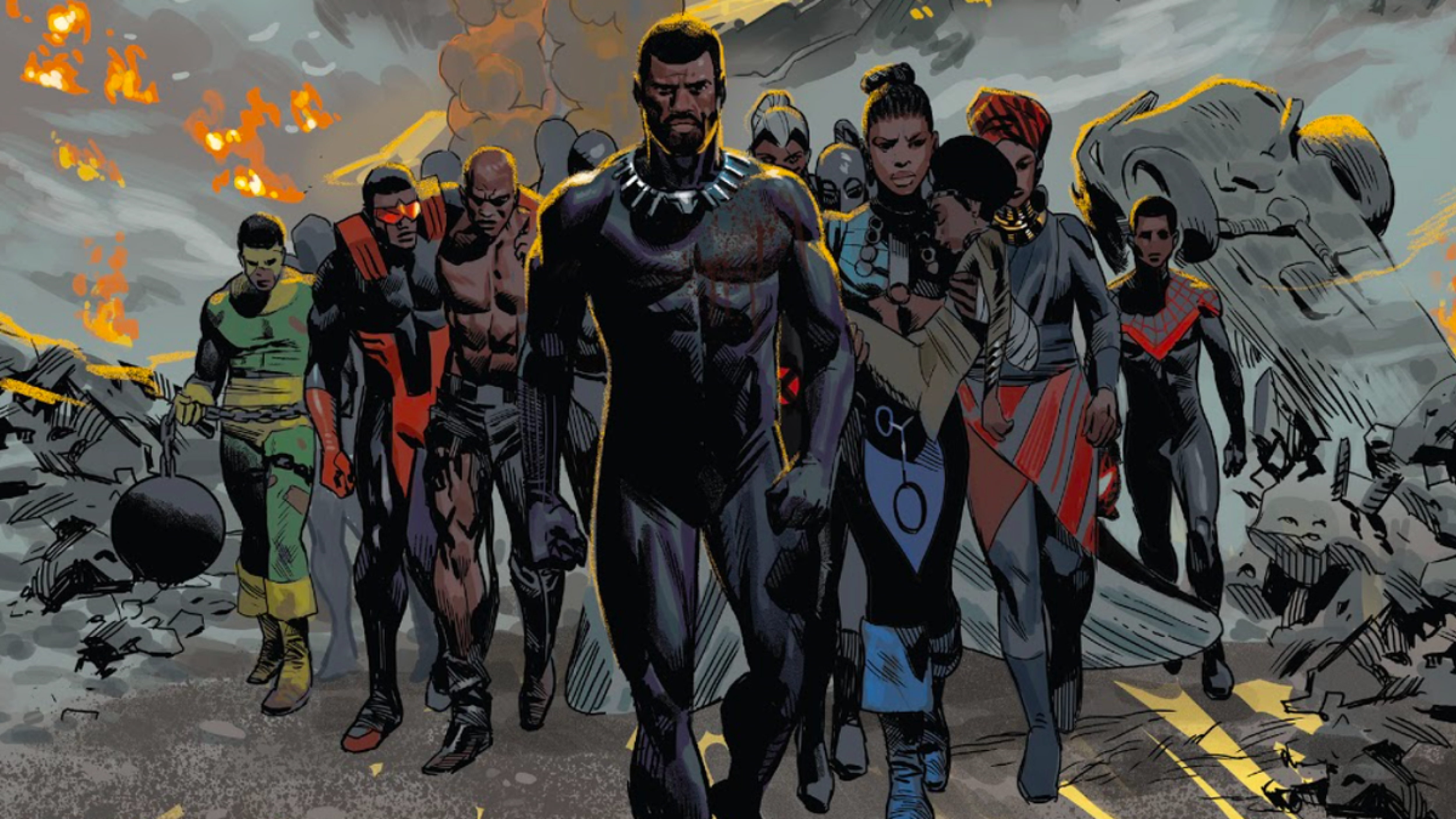Black Panther Writer Ta-Nehisi Coates Wants Better for Creators Bringing These Stories to Life
With Black Panther #25 bringing Ta-Nehisi Coates’ run on the Marvel comic—which transformed Wakanda into a time-traveling, intergalactic empire—to a close, the writer’s moving on to tell the next chapter of another comics icon’s story, with Warner Bros.’ upcoming Superman movie about a Black Kal-El. Though Coates is shifting to a film project next, his love for comics runs deep, and his passion for the art form makes him want better for the other creators working in the space.
In a recent interview with Polygon contributor (and former io9 senior writer) Evan Narcisse, Coates expressed the deep debt he feels to Marvel for putting him in a position to tell Black Panther stories. But Coates also explained how he’s cognizant of how the entertainment industry that turns these stories into multibillion-dollar multimedia franchises isn’t always supportive of the creators behind the comics that their adaptations are based on. “I’m not talking about myself here, because I feel like I’m somebody who is fortunate in the sense that I’ve been able to make a living in all kinds of other ways,” Coates said. “But there are people who make their living off of comic books. And I wish that Marvel found better ways to compensate the creators who helped make Black Panther Black Panther. I wish that they found better ways to compensate the folks who made Captain America Captain America.”
Ed Brubaker and Steve Epting’s “The Death of Captain America” arc was a story that Coates looked at as an example of the kind of fleshing out and deepening of classic characters that he wanted to achieve in his own run on the Captain America series. Brubaker himself recently spoke about his experience watching his take on a comic book character be adapted into the centerpiece of a live-action movie franchise whose profits he scarcely benefitted from despite playing a pivotal role in its creation. In Coates’ view, Brubaker’s Winter Soldier defined the character and set the blueprint for his live-action MCU counterpart recently featured in The Falcon and The Winter Soldier and brings about some logical thoughts.
“I wish they found ways to compensate the author of the greatest Winter Soldier stories that you’re ever going to read. I don’t love that there’s a Falcon and Winter Soldier show on TV and I’m hearing from Ed [Brubaker] that he can’t even get in contact with … I just don’t love that. I don’t love that. Look, I had a great time. I had a tremendous, tremendous time writing for Marvel. I am indebted to Marvel,” he said. “I love my editors, Wil, Tom, Alana, Sara, Martin … Chris. I had great people working with me. The corporate side of this, though … the corporate side of this is not pretty. It’s not pretty at all. How you treat people who create the basis for this, I don’t love it.”
He continued: “But to have that, and to have him bleed into that book, to have Steve Epting bleed into that book the way he did, to see folks making billions over top of billions, and for [Brubaker] to say he can’t get a phone call returned. I don’t know what the relationship will be like in the future, but as a creator, you think about that. You think about how people treat other people. You think about how corporations treat other people. And I just don’t love it, dude.”
G/O Media may get a commission
Though this is the nature of for-hire work where the IP created ultimately belongs to the company that owns the rights to the characters, it’s an aspect of the industry worth considering as publishers and studios alike continue to turn these stories into big screen and streaming spectacles for audiences to consume.
For more, make sure you’re following us on our Instagram @io9dotcom.

